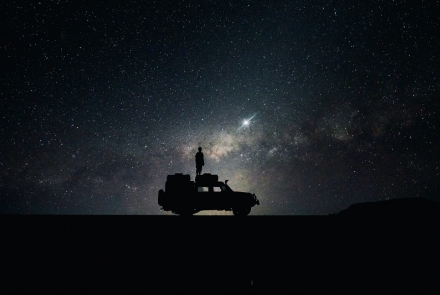
Image: https://pxhere.com/en/photo/1408981
A place in the space race
On the latest Policy Forum Pod, two experts take a look at the recent decision to establish a national space agency, and what it will mean for Australia.
If you paid attention to Australia’s recent budget, you may have heard that the government has put aside $41 million towards launching a new national space agency. The aim is to kick-start a multi-billion dollar industry, putting Australia firmly on board the global space revolution as new technology takes off in the decades ahead. Sound out of this world? Don’t miss this stellar latest podcast with Anna Moore and Brad Tucker, two leading experts in this space. Listen here
Professor Anna Moore is Director of the Advanced Instrumental Technology Centre at the Australian National University. She was also a member of the Expert Reference Group which contributed to the recent government review of Australia’s space sector.
Dr Brad Tucker is an astrophysicist at the ANU Research School of Astronomy and Astrophysics. Among other things, his research looks at cosmology, supernova, dark energy, and asteroid mining.
The global space industry is worth about $400 billion. Yet despite being a world leader in key space capabilities like telecommunications and data analytics, Australia’s share of this market is only between $3 -$4 billion.
What Australia has needed for a long time is an agency to expand the country’s capabilities and help bring space expertise to the mainstream, says Moore.
“We need a single front door to our activities,” she says. “It’s currently very spotty – three institutions have an MOU with the same international space agency, and that doesn’t send the right message overseas.”
“It’s one of the interesting times when you kind of need bureaucracy, because you actually need the bureaucracy,” adds Tucker.
“Imagine a research school or a university department’s head having to negotiate with space launch companies and agencies to put something in space – how do you even do this? That’s what we’ve had for 50 years in this country.”
While the $41 million allocated in the budget to establish the space agency might not sound like much, its purpose should not be mistaken.
“Set-up, seed funding, kickstart, those were the words that were used. That automatically gives the message that that’s just what we need to get the core of the agency together,” Moore says.
The figure should be seen as part of a package of space-related spending that will make a real difference to the sector, she says.
“What was fantastic out of this federal budget was the $260 million for really exciting infrastructure. $50 million of that was for Geoscience Australia. Another $200 million was to invest in an infrastructure for enhanced GPS positioning, which has been proposed for a long time.”
So with a national agency to help put the space sector into gear, how aspirational should Australia sector be?
“I think it’s good to think lofty,” Tucker says. “Everyone asks are we going to have someone on Mars. I would say, why not?
“We should think of lofty aspirations but have clear goals and ways to achieve them, because it is the big goals that allow us to do the small steps and do them effectively.”
Australian space policy needs both practicality and inspiration, adds Moore.
“I have an 8 year-old, a 6 year-old, and a 4 year-old, and I guarantee not one of them is going to be inspired if I start talking about GDP.
“You’ve got to have that element that captures the younger generation to wonder… and you’ve got to help their parents, they want to know that their kids have got jobs when they come through.”
What about the criticism that Australia shouldn’t be pumping dollars into a space industry when it could be spending the money on health and education?
“This is a fundamental problem people have in their views of space. Space isn’t just fun people doing fun things,” says Tucker.
“I love the milk example. If you do not have a well-funded space system, your cost of milk is going to go to $20 a litre, because farmers use it for efficiency, from their watering to their transportation to the way they rotate their crops.”
Moore agrees. “The reality is that if we just turned off everything that was related to space, we wouldn’t be able to live our lives at all.”
“We have all of these great things happening here, but you don’t hear about it,” says Tucker.
“The reason people hear about NASA is not just because they have good PR people – it’s because there’s 14 different centres plus smaller groups all across the country. You don’t hear about that one individual group, it’s just ‘NASA’.
“When you put the sum of the parts together, we have a great story here, so it’s making sure that story is told and well maintained.”
Anna Moore and Brad Tucker were in conversation with Martyn Pearce. This episode of the pod was produced by Nicky Lovegrove and edited by Martyn Pearce. This blog post was written by Nicky Lovegrove.
Policy Forum Pod is a production of Crawford School’s Policy Forum website. The podcast is available on Spotify, iTunes, Stitcher, and wherever you get your podcasts. Got feedback for us on this pod? Tweet us @APPSPolicyForum or find us on Facebook.
Updated: 9 August 2024/Responsible Officer: Crawford Engagement/Page Contact: CAP Web Team












